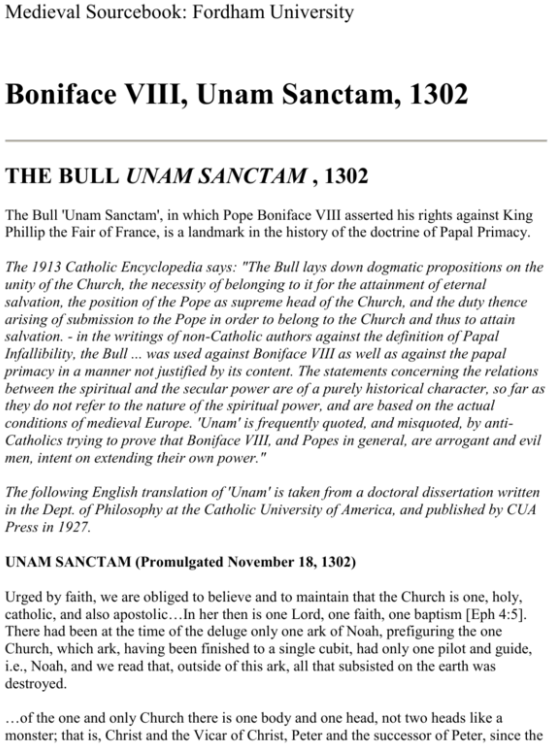
The following documents are posted as 'Public Notice' regarding the exercise of 'due process of law' when disputing the Mort-gage (Deed of Trust) and 'Promissory Note'. The public is encouraged to read, study and examine the documents posted for scrutiny and the enforcement of the Supreme Law of the Land'.




–Mort-gage. From Old French, literally ‘Dead-Pledge’, from mort (from Latin mortuus ‘dead’) + gage ‘pledge’. Also called ‘mortuum vadium’.
The ‘Deed of Trust’ / ‘Mort-gage’ (dead-pledge) is a ‘feoffment’ (bottomry) instrument used to coerce you (the alleged ‘Borrower’) to abandon your ‘right of claim’ to your (real) estate, and convey it to a ‘Feoffor’ (the alleged ‘Lender’ / Trustee named on the Mort-gage) for the purpose of sharecropping.
The ‘Deed’ that you signed at the “settlement-closing meeting” did not and does not convey any ‘title of ownership’ to you at all. Therefore, it is ‘Color of Title’ and NOT title. The ‘Deed’ says in the beginning paragraph, “the property was conveyed, in fee simple“. A “fee” is for feudal tenants / serfs / subjects under feudalism within purview of the unconstitutional 14th Amendment, and does not constitute ownership at all!
Please take your time to review the following terms below which are defined in the Black’s Law Dictionary, 4th and 5th Editions:
-Feoffment. The gift of any corporeal hereditament [anything that can be inherited] to another, operating by transmutation of possession, and requiring, as essential to its completion, that the seisin be passed, which might be accomplished either by investiture or by livery of seisin. A gift of a freehold interest in land accompanied by livery of seisin. The essential part is the livery of seisin.
Also the deed or conveyance by which such corporeal hereditament is passed. A feoffment originally meant the grant of a feud or fee; that is, a barony or knight’s fee, for which certain services were due from the feoffee to the feoffor.
-Feoffor. The person making a feoffment, or enfeoffing another in fee.
– Fee (estates). Ordinarily, word “fee” or “fee simple” is applied to an estate in land, but term is applicable to any kind of hereditament, corporeal or incorporeal, and is all the property in thing referred to or largest estate therein which person may have.
A freehold estate in lands, held of a superior lord, as a reward for services, and on condition of rendering some service in return for it.
The true meaning of the word “fee” is the same as that of “feud” or “fief,” and in its original sense it is taken in contradistinction to “allodium,” which latter is defined as a man’s own land, which he possesses merely in his own right, without owing any rent or service to any superior.
-Allodial. Free; not holden of any lord or superior; owned without obligation of vassalage or fealty; the opposite of feudal.
-Allodium. Land held absolutely in one’s own right, and not of any lord or superior; land not subject to feudal duties or burdens. An estate held by absolute ownership, without recognizing any superior to whom any duty is due on account thereof.


“Unam Sanctam” is a Latin phrase meaning “One Holy.”
It refers to the papal bull issued by Pope Boniface VIII in 1302, which asserts the Roman Catholic Church’s supremacy of spiritual and temporal (worldly) authority over all people and lands. The duty of all human beings to submit to the Pope of Rome for salvation.
‘Unam Sanctum’ is Colonialism / Feudalism.
“Usufruct”. In the civil law, the right of enjoying a thing, the property of which is vested in another, and to draw from the same all the profit, utility, and advantage which it may produce, provided it be without altering the substance of the thing. – Black’s Law Dictionary, 5th Edition.
Bull of Pope Boniface VIII promulgated November 18, 1302
Urged by faith, we are obliged to believe and to maintain that the Church is one, holy, catholic, and also apostolic. We believe in her firmly and we confess with simplicity that outside of her there is neither salvation nor the remission of sins, as the Spouse in the Canticles [Sgs 6:8] proclaims: ‘One is my dove, my perfect one. She is the only one, the chosen of her who bore her,‘ and she represents one sole mystical body whose Head is Christ and the head of Christ is God [1 Cor 11:3]. In her then is one Lord, one faith, one baptism [Eph 4:5]. There had been at the time of the deluge only one ark of Noah, prefiguring the one Church, which ark, having been finished to a single cubit, had only one pilot and guide, i.e., Noah, and we read that, outside of this ark, all that subsisted on the earth was destroyed.
We venerate this Church as one, the Lord having said by the mouth of the prophet: ‘Deliver, O God, my soul from the sword and my only one from the hand of the dog.’ [Ps 21:20] He has prayed for his soul, that is for himself, heart and body; and this body, that is to say, the Church, He has called one because of the unity of the Spouse, of the faith, of the sacraments, and of the charity of the Church. This is the tunic of the Lord, the seamless tunic, which was not rent but which was cast by lot [Jn 19:23- 24]. Therefore, of the one and only Church there is one body and one head, not two heads like a monster; that is, Christ and the Vicar of Christ, Peter and the successor of Peter, since the Lord speaking to Peter Himself said: ‘Feed my sheep‘ [Jn 21:17], meaning, my sheep in general, not these, nor those in particular, whence we understand that He entrusted all to him [Peter]. Therefore, if the Greeks or others should say that they are not confided to Peter and to his successors, they must confess not being the sheep of Christ, since Our Lord says in John ‘there is one sheepfold and one shepherd.’ We are informed by the texts of the gospels that in this Church and in its power are two swords; namely, the spiritual and the temporal. For when the Apostles say: ‘Behold, here are two swords‘ [Lk 22:38] that is to say, in the Church, since the Apostles were speaking, the Lord did not reply that there were too many, but sufficient. Certainly the one who denies that the temporal sword is in the power of Peter has not listened well to the word of the Lord commanding: ‘Put up thy sword into thy scabbard‘ [Mt 26:52]. Therefore, both are in the power of the Church, namely, the spiritual sword and the material. But indeed, the latter is to be exercised on behalf of the Church; and truly, the former is to be exercised by the Church. The former is of the priest; the latter is by the hand of kings and soldiers, but at the will and sufferance of the priest.
However, one sword ought to be subordinated to the other and temporal authority, subjected to spiritual power. For since the Apostle said: ‘There is no power except from God and the things that are, are ordained of God‘ [Rom 13:1-2], but they would not be ordained if one sword were not subordinated to the other and if the inferior one, as it were, were not led upwards by the other.
For, according to the Blessed Dionysius, it is a law of the divinity that the lowest things reach the highest place by intermediaries. Then, according to the order of the universe, all things are not led back to order equally and immediately, but the lowest by the intermediary, and the inferior by the superior. Hence, we must recognize the more clearly that spiritual power surpasses in dignity and in nobility any temporal power whatever, as spiritual things surpass the temporal. This we see very clearly also by the payment, benediction, and consecration of the tithes, but the acceptance of power itself and by the government even of things. For with truth as our witness, it belongs to spiritual power to establish the terrestrial power and to pass judgement if it has not been good. Thus is accomplished the prophecy of Jeremias concerning the Church and the ecclesiastical power: ‘Behold to-day I have placed you over nations, and over kingdoms‘ and the rest. Therefore, if the terrestrial power err, it will be judged by the spiritual power; but if a minor spiritual power err, it will be judged by a superior spiritual power; but if the highest power of all err, it can be judged only by God, and not by man, according to the testimony of the Apostle: ‘The spiritual man judgeth of all things and he himself is judged by no man‘ [1 Cor 2:15]. This authority, however, (though it has been given to man and is exercised by man), is not human but rather divine, granted to Peter by a divine word and reaffirmed to him (Peter) and his successors by the One Whom Peter confessed, the Lord saying to Peter himself, ‘Whatsoever you shall bind on earth, shall be bound also in Heaven‘ etc., [Mt 16:19]. Therefore whoever resists this power thus ordained by God, resists the ordinance of God [Rom 13:2], unless he invent like Manicheus two beginnings, which is false and judged by us heretical, since according to the testimony of Moses, it is not in the beginnings but in the beginning that God created heaven and earth [Gen 1:1]. Furthermore, we declare, we proclaim, we define that it is absolutely necessary for salvation that every human creature be subject to the Roman Pontiff.
The UNITED STATES / UNITED STATES OF (North) AMERICA, Inc., is a corporation operating de facto as a rouge country / state for the Roman Catholic Church, and a de facto government at North America within the dominions of the Moroccan Empire.
Therefore the UNITED STATES (Inc.) is actually a war machine used to plunder the aboriginal Moors and their abandoned lands, resources, and commercial ports using colonialism, feudalism, and usufruct via Deeds and Deeds of Trust / Mortgages under Article 22 and 23 of the Treaty of Peace and Friendship of 1836 between the United States of North America and the Moors Moroccan Empire. Therefore, to rule the world from the throne of the Moroccan Empire at North America, i.e., ancient Egyt / Kemet / Hikuptah of Amexem (Land of the Gods).